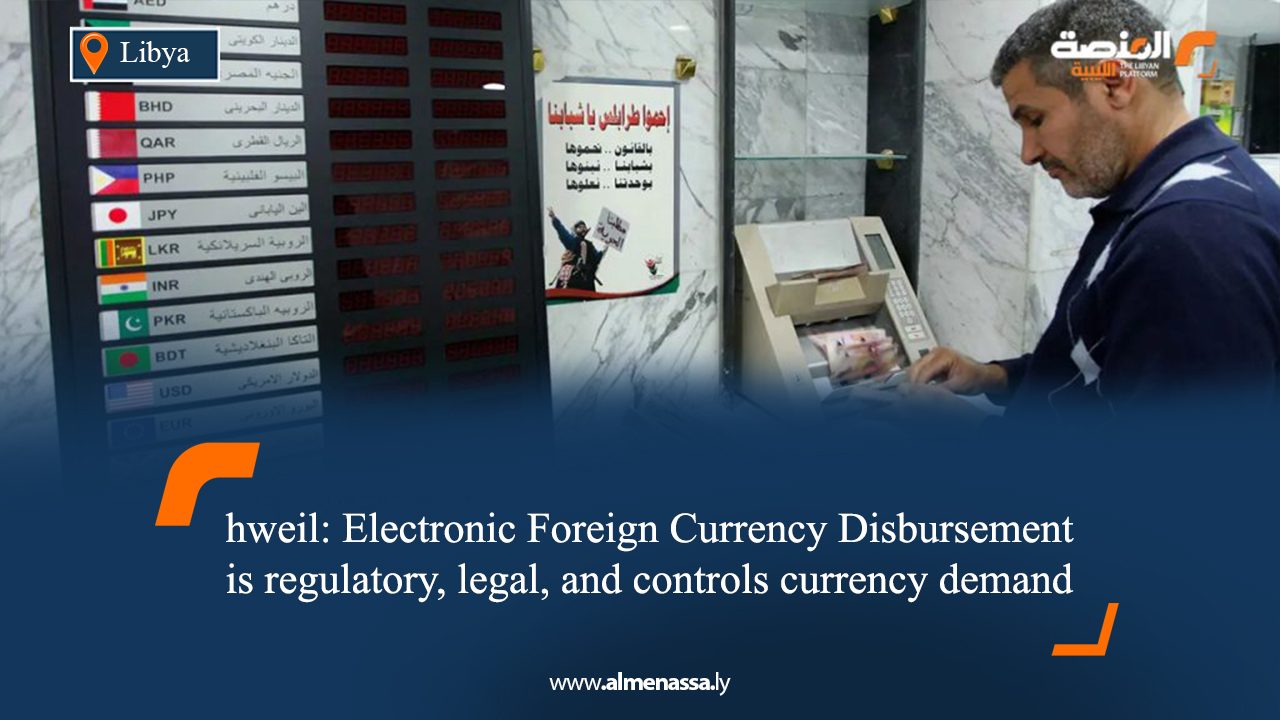Salama al-Ghweil, Libya’s former Minister of Economy, has voiced strong support for the country’s newly introduced electronic foreign exchange mechanism, describing it as a regulatory instrument that channels access to hard currency through transparent and official banking routes.
In remarks to Erm Business, al-Ghweil emphasised that the system is legally binding for all stakeholders — banks, traders, and individuals alike — and derives its authority from existing legislation governing currency exchange and transfers. This legal foundation, he said, ensures accountability and enables effective oversight.
From an economic standpoint, al-Ghweil argued that the mechanism helps ease pressure on the foreign exchange market by curbing excessive demand and narrowing the price gap between official and parallel markets. He believes this will contribute to price stability and safeguard the value of the national currency.
He added that if implemented swiftly and clearly, the system could allow citizens to access foreign currency at fair rates for essential needs such as medical treatment, education, travel, or personal imports — without falling prey to speculation or exploitation. However, he cautioned that its success hinges on prompt execution, procedural clarity, and integration with broader monetary and fiscal policies that address the root causes of Libya’s economic crisis, not just its symptoms


